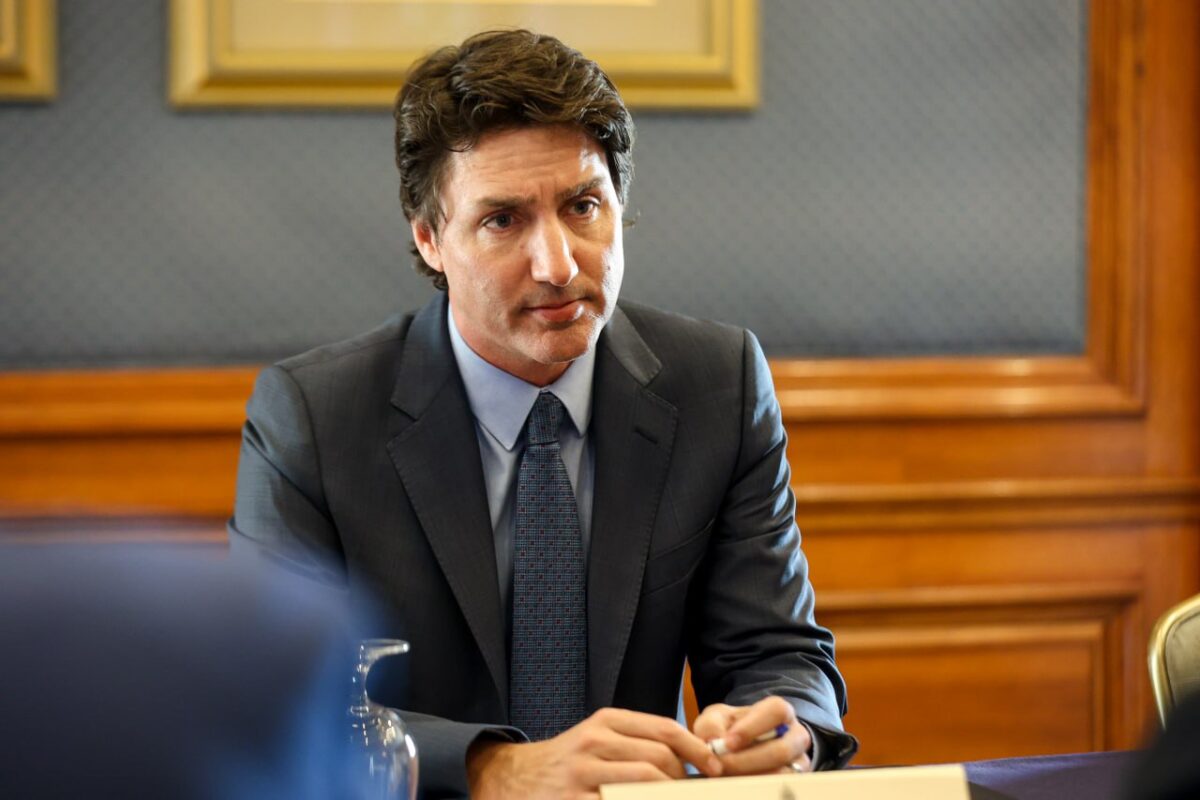As keen advocates of international law, Justin Trudeau and Chrystia Freeland were elated last year when the International Criminal Court (ICC) tried to prosecute Russian President Vladimir Putin for war crimes in Ukraine. They even sent the RCMP to help with the investigation.
However, that enthusiasm for international law — on the part of both the prime minister and deputy prime minister — was notably lacking last week when the ICC’s top prosecutor Karim Khan announced he was seeking arrest warrants for Israeli Prime Minister Benjamin Netanyahu and Defence Minister Yoav Gallant, as well as three Hamas leaders.
Trudeau said he was troubled by “the sense of an equivalency between the democratically elected leaders of Israel and the bloodthirsty terrorists that lead up Hamas.”
This is a very disappointing response from Canada to the ICC’s important initiative, which is a major step forward in advancing a key aspect of international law and ensuring that it’s applied equally and universally.
Set up under a global treaty known as the Statute of Rome, the ICC has a mandate to prosecute perpetrators of the gravest international crimes — war crimes, crimes against humanity, genocide.
Since it came into force in 2002, the ICC has mostly prosecuted African dictators. It broadened its scope last year with its attempted arrest of Putin. (Russia isn’t a signatory and didn’t co-operate.)
But this is the first ICC attempt to prosecute a leader of a country with strong ties to the West and particularly close ties to the United States (also not a signatory).
The Biden administration responded by vehemently rejecting any prosecution of Israeli leaders. A group of Republican senators went further, issuing a threat to Khan: “Target Israel and we will target you … we will move to end all American support for the ICC, sanction your employees and associates, and bar you and your families from the United States. You have been warned.”
But, in a CNN interview, Khan insisted he won’t be dissuaded by such bullying, noting the court’s job is to thoroughly review all evidence, ignoring the nationality.
“This is not a witch hunt …. It’s a forensic process that is expected of us as international prosecutors, as an independent court … So, it’s not against any people … This court should be the triumph of law over power and brute force,” Khan said.
He maintained there is abundant evidence for prosecuting the two Israeli leaders for “crimes of causing extermination, causing starvation as a method of war, including the denial of humanitarian relief supplies, deliberately targeting civilians in conflict.”
And he pointed to numerous statements by Israeli leaders, including by Gallant two days after Hamas’ murderous raid into Israel: “We are imposing a complete siege on the Gaza Strip. There will be no electricity, no food, no water, no fuel. Everything is closed. We are fighting human animals and we are acting accordingly.”
This policy has led to “pernicious” results, Khan said, as he laid out details of the destruction and deprivation in Gaza. “Every avenue that is so important to human survival has been constrained or suffocated.”
A British lawyer, Khan became ICC chief prosecutor in 2021 after winning the support of 72 nations. It was he who attempted to prosecute Putin last year.
While many ICC members, including France and Belgium, have reacted positively to Khan’s announcement, Canada has followed more in line with the U.S. in expressing disapproval, even while voicing support for the court.
Trudeau’s suggestion that Israeli leaders should be treated differently because they are “democratically elected” makes no sense.
As Khan puts it: “Every baby that is killed, whether it’s a baby that’s cruelly abducted by Hamas and killed or a baby that’s been bombed or … died in [an] incubator because of no electricity or water or food in Gaza, for them, for their families and humanity it’s a tragedy. And this is why we have a court. It’s about the equal application of the law.”
This article originally appeared in the Toronto Star.



